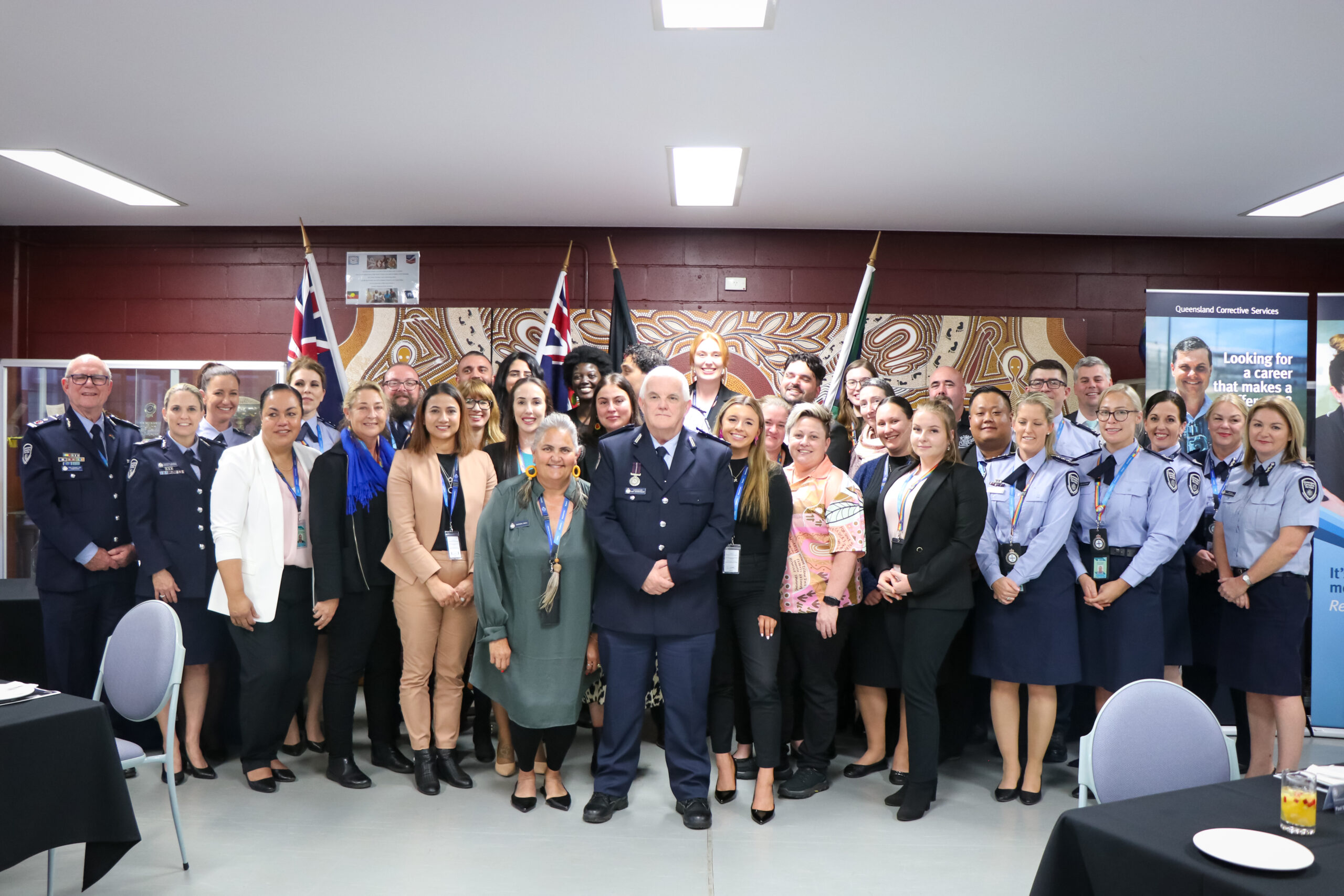Setting strong foundations for Community Corrections
- 17 new Community Corrections officers graduated this week alongside 3 Cultural Liaison Officers
- New approach to Community Corrections training delivering benefits for officers, communities and individuals under supervision
- Community Corrections is key to keeping Queensland communities safe by supervising individuals and supporting long-term behaviour change
Seventeen new Case Managers and Probation Services Officers are ready to get out into the community as the first to complete Queensland Corrective Services’ front-end Community Corrections case management training, ‘Foundations’.

The new evidence-based training, co-developed with Swinburne University, provides officers with a solid toolkit of real-world skills and practices before they start working with supervised offenders.
It represents a new direction for Community Corrections and involves five weeks of up-front theory-based training at the QCS Academy in Brisbane, followed by another four weeks of onboarding activities at assigned regional offices before taking on caseloads.
The 200 hours of centralised training delivers best practice in case management including the most up to date research on behaviour change, ensures consistency in knowledge, and builds confidence. It also enables new officers to be familiar with peers who will work in regions across Queensland, creating a statewide network they can lean in to for ongoing collaboration and support.

The new Community Corrections officers were recognised by Minister for Corrective Services Mark Ryan MP at a graduation ceremony at the QCS Academy in Brisbane on Thursday (3 August), alongside three new QCS Cultural Liaison Officers who help facilitate effective communication, understanding and respect among staff, First Nations offenders and their families.
Quotes attributable to Minister for Corrective Services, Mark Ryan MP:
“Community Corrections officers play an important role in reducing recidivism and helping offenders rehabilitate towards a crime-free life, which contributes to keeping Queensland communities safe.
“The Foundations program is an excellent initiative that ensures Case Managers and Probation Services Officers have training up-front, so they have all the skills and knowledge they need to hit the ground running once out in the field.
“I congratulate the officers graduating this week as the first cohort to complete the training, as well as three more QCS Cultural Liaison Officers working to provide guidance and support on First Nations matters. I wish them well as they continue in their career.”
Quotes attributable to Deputy Commissioner Ursula Roeder ACM, Community Corrections and Specialist Operations, QCS:
“This is a fresh new approach to training our Community Corrections Case Managers and Probation Services Officers and delivers a multitude of benefits for them, the people we supervise and our regional teams.
“Centralising the training and providing it before they enter their assigned district offices ensures our recruits are learning together, can share ideas and are better prepared for caseloads. It also enables them to build relationships with peers that will be beneficial as they move forward in their careers.
“We know that every interaction we have with an offender under our supervision is an opportunity to encourage long-term behavioural change, and this world-class training provides an exceptional platform to develop the key skills required to perform their roles.
“Today’s graduates come from diverse backgrounds and bring varied experiences and perspectives, which provides them with the empathy, insight, and resilience they need as a solid foundation to becoming a case manager.”
Further information:
- Recruitment for QCS Case Managers and Probation Services Officers is ongoing. For more information and to find out how to apply, head to https://corrections.qld.gov.au/comm-corr-front-end-recruitment
- Case Managers require a bachelor’s degree in human services or criminology fields, with final year students encouraged to apply.
- The next Foundations training intake starts 18 September.
- The training includes modules on legislation and the criminal justice system, human rights, communication skills, tools for case management, cultural and gender-responsive practice and working with individuals with history of substance abuse or family and domestic violence.
- QCS Community Corrections supervise more than 18,000 offenders under orders imposed by the courts or Parole Board Queensland.
ENDS

